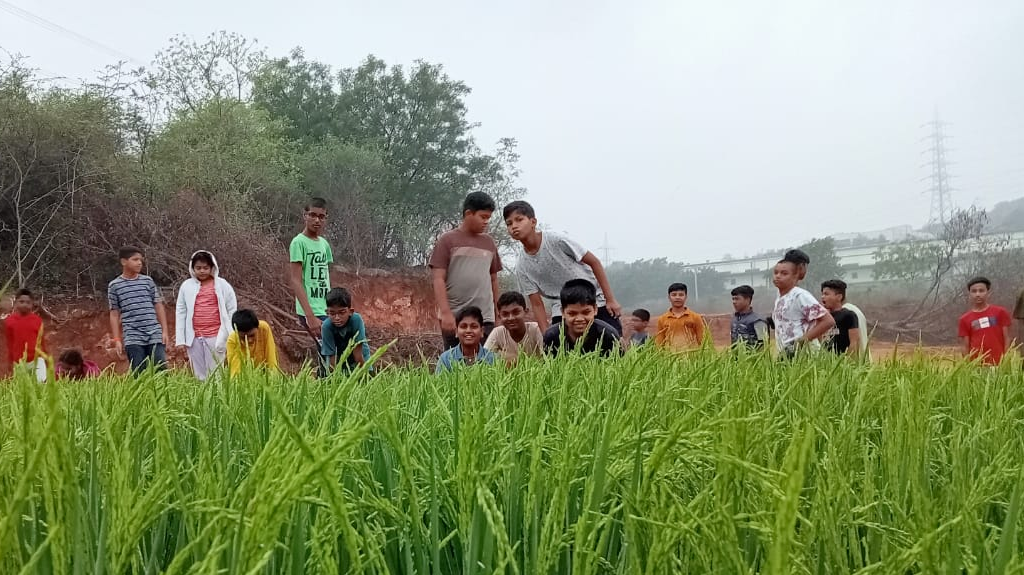
The Students develop themselves through self learning.
Celebrating Oneness
Residential schools, with their unique environment of shared living and learning, provide a remarkable canvas for fostering a sense of oneness and unity among students. In this blog, we explore the significance of celebrating oneness in residential schools, drawing inspiration from the principles of unity, collaboration, and shared experiences. The harmonious coexistence within such communities not only enriches the educational journey but also lays the foundation for a vibrant, interconnected future.
- Community Living as a Catalyst for Unity: Residential schools, by design, bring students together into a close-knit community where they live, learn, and grow side by side. This shared living experience becomes a catalyst for fostering a sense of unity. Living in close quarters encourages students to appreciate diversity, learn from each other, and build lasting connections that transcend cultural, social, and linguistic differences.
- Collaborative Learning: The residential school setting provides an ideal platform for collaborative learning. Students have the opportunity to engage in group projects, communal activities, and shared responsibilities, promoting a culture of mutual support and cooperation. Celebrating oneness in education extends beyond the confines of the classroom, creating an environment where collective achievements are cherished, and individual successes are shared by the entire community.
- Cultural Exchange and Understanding: Residential schools often attract students from diverse cultural backgrounds. This diversity becomes a rich tapestry that, when celebrated, fosters a deep understanding and appreciation for various traditions, languages, and customs. Cultural exchange programs, festivals, and events become avenues for students to learn from one another, breaking down barriers and creating a harmonious atmosphere.
- Shared Values and Ethical Frameworks: The residential school environment is conducive to instilling shared values and ethical frameworks. By promoting a sense of oneness, schools can cultivate a common understanding of core principles such as respect, empathy, and integrity. These shared values become the foundation for a cohesive community that upholds a collective commitment to personal and academic growth.
- Embracing Diversity as a Strength: Instead of viewing differences as challenges, residential schools can celebrate diversity as a strength. Oneness does not imply uniformity; rather, it thrives on the unique contributions of each individual. Embracing diversity enriches the educational experience, providing students with a broader perspective on life and preparing them for the interconnected global society they will enter.
Conclusion:
Celebrating oneness in residential schools is a transformative journey that goes beyond the academic curriculum. It is about fostering a culture of unity, collaboration, and mutual respect. By embracing the diversity within their walls and cultivating a sense of shared purpose, residential schools create an environment where students learn not only from textbooks but from each other’s experiences. In doing so, they lay the groundwork for a future where the celebration of oneness becomes a guiding principle in building a harmonious, interconnected world.

